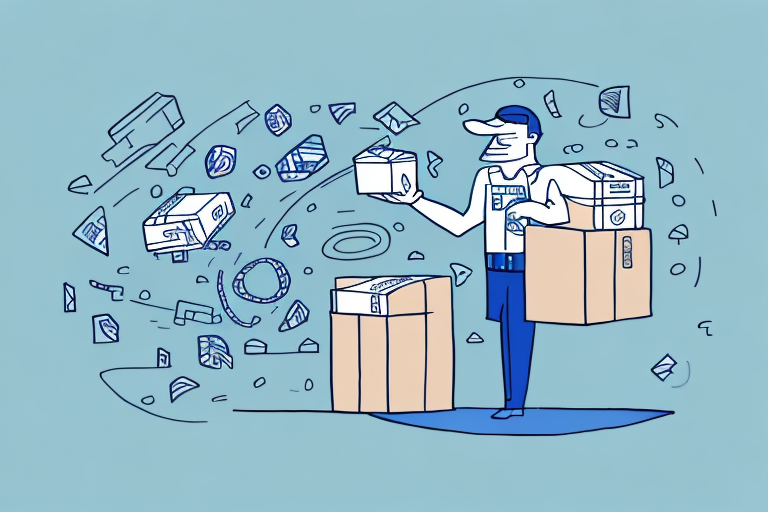How to Become a Medical Courier Independent Contractor
Embarking on a career as a medical courier independent contractor offers a unique opportunity to blend driving skills with a vital role in the healthcare industry. This comprehensive guide provides detailed steps to help you become a successful medical courier and establish your own business.
Understanding the Growing Demand for Medical Courier Services
Industry Growth and Market Trends
The medical courier industry has experienced significant growth in recent years, with the global market projected to reach $XX billion by 2025 [Source]. Factors contributing to this expansion include the rise of telemedicine, increased demand for fast and reliable transportation of medical samples, and the overall growth of the healthcare sector.
Role of Medical Couriers in Healthcare
Medical couriers are essential in ensuring the swift and secure transport of medical materials between healthcare providers, laboratories, and pharmaceutical companies. Their responsibilities include handling time-sensitive samples, specialized equipment, and adhering to strict regulatory guidelines, making their role indispensable in maintaining the efficiency of healthcare operations.
Benefits of Being a Medical Courier Independent Contractor
Flexibility and Autonomy
- Set your own work hours
- Choose your client base
- Control over workload and geographic area
As an independent contractor, you enjoy the flexibility to design a work schedule that fits your lifestyle, allowing for a better work-life balance. This autonomy also enables you to select the clients and contracts that align with your business goals.
Earning Potential and Professional Growth
Medical couriers can achieve a high income potential due to the specialized nature of their services. Additionally, opportunities for professional growth include specializing in areas such as pharmaceutical deliveries or expanding services to include logistics and warehousing.
Essential Qualifications for Aspiring Medical Couriers
Basic Requirements
- Clean driving record
- Reliable and well-maintained vehicle
- Valid driver's license
These foundational qualifications ensure that you meet the basic operational standards required for transporting medical materials.
Advanced Skills and Certifications
- Time management and organizational skills
- Knowledge of medical terminology and procedures
- Certifications in handling medical materials (varies by state)
Advanced skills enhance your ability to manage deliveries efficiently and comply with medical handling protocols. Obtaining relevant certifications can also provide a competitive edge in the market.
Step-by-Step Guide to Becoming a Medical Courier Independent Contractor
1. Conduct Comprehensive Industry Research
Understand the current market trends, demand, and competitive landscape. Utilize resources like Statista and industry reports to gather valuable insights.
2. Obtain Necessary Licenses and Certifications
Depending on your location, you may need specific licenses or certifications to transport medical materials. Check with local regulatory bodies to ensure compliance.
3. Invest in Reliable Equipment
Ensure you have a dependable vehicle equipped with necessary safety features. Additionally, invest in specialized equipment such as coolers, insulated bags, and GPS tracking systems.
4. Develop a Robust Business Plan
A solid business plan outlines your business objectives, target market, financial projections, and marketing strategies. This plan serves as a roadmap for your business growth.
5. Market Your Services Effectively
Build a professional website, leverage social media, and network within the healthcare industry to promote your services. Consider offering introductory discounts to attract initial clients.
Setting Up Your Medical Courier Business
Registering Your Business
Choose a unique business name and register it with your state or local government. Ensure compliance with all legal requirements to operate your business legally.
Obtaining Insurance
Secure liability insurance to protect your business against potential accidents or damages. Comprehensive insurance coverage is essential for safeguarding your assets and maintaining client trust.
Acquiring Specialized Equipment
Invest in high-quality coolers, insulated bags, and reliable vehicles to ensure the safe transport of medical materials. Additionally, consider implementing tracking software to monitor deliveries in real-time.
Legal and Regulatory Compliance
Understanding Legal Requirements
Compliance with federal and state regulations is crucial. This includes adhering to transportation guidelines set by organizations such as the CDC and the FDA.
Tax Obligations
Register for an Employer Identification Number (EIN) and ensure timely payment of all relevant taxes. Consulting with a tax professional can help you navigate complex tax requirements.
Essential Equipment for Medical Couriers
Transportation Tools
- Insulated coolers and specialized containers
- GPS navigation systems
- Reliable, fuel-efficient vehicles
These tools are critical for maintaining the integrity of medical materials during transport and ensuring timely deliveries.
Safety and Hygiene Equipment
- Personal protective equipment (PPE) such as gloves and masks
- Sanitization supplies for vehicle and equipment
Adhering to safety and hygiene protocols is essential to prevent contamination and ensure the safe handling of medical materials.
Effective Marketing Strategies for Your Medical Courier Services
Establishing an Online Presence
Create a professional website and maintain active social media profiles to increase visibility. Utilize search engine optimization (SEO) techniques to attract potential clients searching for medical courier services.
Networking and Partnerships
Attend healthcare industry conferences and join professional associations to build relationships with potential clients. Partnering with hospitals, clinics, and laboratories can significantly expand your client base.
Offering Specialized Services
Differentiate your business by offering specialized services such as temperature-controlled transportation for sensitive medical specimens. This specialization can attract clients with specific needs and enhance your reputation in the industry.
Insurance and Safety Measures
Comprehensive Insurance Coverage
Ensure your business is covered with liability insurance and property damage insurance. This protection is vital for mitigating risks associated with transporting valuable and sensitive medical materials.
Implementing Safety Protocols
Adhere to strict safety measures, including proper securing of materials during transport, maintaining appropriate temperature controls, and following hygiene practices to prevent contamination. Regular training on safety protocols can enhance your reliability and client trust.
Building Strong Relationships with Healthcare Providers
Reputation for Reliability
Consistently deliver materials on time and maintain high standards of service to build a reputation for reliability. Positive word-of-mouth and testimonials can significantly boost your business credibility.
Professional Communication
Maintain clear and proactive communication with clients to understand their needs and exceed their expectations. Effective communication fosters long-term relationships and client loyalty.
Expanding Your Medical Courier Business
Service Diversification
Expand your offerings by including additional services such as medical supply delivery or warehousing solutions. Diversifying your services can attract a broader range of clients and increase revenue streams.
Geographic Expansion
Extend your service area to cover new geographic regions. Partnering with other medical courier companies can facilitate expansion and enable you to handle larger volumes of deliveries.
Enhanced Marketing Efforts
Invest in targeted advertising and advanced marketing strategies to increase your business’s visibility and attract more clients. Utilizing digital marketing tools can effectively reach your target audience.
Overcoming Challenges as a Medical Courier Independent Contractor
Client Acquisition and Retention
Maintaining a steady flow of clients requires consistent quality service and effective marketing. Implement strategies to acquire new clients while retaining existing ones through exceptional service.
Managing Physical Demands
The role can be physically demanding, with long hours and the need to handle heavy or sensitive materials. Prioritize self-care and efficient time management to mitigate these challenges.
Handling Legal and Financial Issues
Be prepared to navigate unforeseen expenses and legal matters. Establish a contingency fund and seek professional legal and financial advice to manage these aspects effectively.
The Future of the Medical Courier Industry
The medical courier industry is poised for continued growth, driven by advancements in telemedicine, increased demand for rapid medical material transportation, and the expansion of the healthcare sector. Innovations in technology, such as automated tracking systems and eco-friendly transportation solutions, are expected to further enhance the efficiency and reliability of medical courier services.
For independent contractors, the evolving landscape presents ample opportunities for expansion and specialization. By staying informed about industry trends and continuously improving your services, you can position your medical courier business for long-term success.
Conclusion
Becoming a medical courier independent contractor offers a rewarding career path with numerous benefits, including flexibility, high earning potential, and the opportunity to make a meaningful impact in the healthcare industry. By following the steps outlined in this guide and committing to excellence in service delivery, you can successfully establish and grow a thriving medical courier business.




















